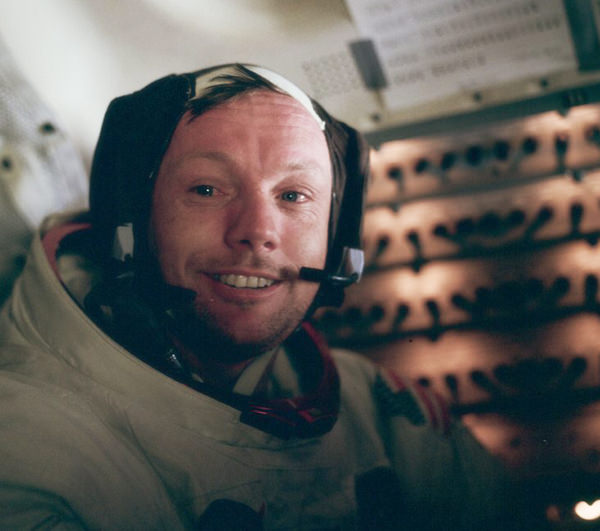“That’s one small step for man… one giant leap for mankind.” And with those famous words astronaut Neil A. Armstrong awed the entire world on July 21, 1969, becoming the first human to set a booted foot upon a world other than our own. But the historic statement itself has caused no small bit of confusion and controversy over the years, from whether Armstrong came up with it on the spot (he didn’t) to what he actually said… small step for “man?” Where’s the “a?”
Although some have said that the article was left out or cut off (and admittedly it sure sounds that way to me) it turns out it’s probably been there the whole time, hidden behind Neil’s native Ohio accent.
According to a team of speech scientists and psychologists from Michigan State University (MSU) in East Lansing and The Ohio State University (OSU) in Columbus, it is entirely possible that Armstrong said what he had always claimed — though evidence indicates that most people are likely to hear “for man” instead of “for a man” on the Apollo 11 broadcast recordings.
By studying how speakers from Armstrong’s native central Ohio pronounce “for” and “for a,” the team’s results suggest that his “a” was acoustically blended into his “for.”
“Prior acoustic analyses of Neil Armstrong’s recording have established well that if the word ‘a’ was spoken, it was very short and was fully blended acoustically with the preceding word,” says Laura Dilley of Michigan State University. “If Armstrong actually did say ‘a,'” she continues, “it sounded something like ‘frrr(uh).'”
His blending of the two words, compounded with the poor sound quality of the television transmission, has made it difficult to corroborate his claim that the “a” is there.
“If Armstrong actually did say ‘a,’ it sounded something like ‘frrr(uh).'”
– Laura Dilley, Michigan State University
Dilley and her colleagues used a collection of recordings of conversational speech from 40 people raised in Columbus, Ohio, near Armstrong’s native town of Wapakoneta. Within this body of recordings, they found 191 cases of “for a.” They matched each of these to an instance of “for” as said by the same speaker and compared the relative duration. They also examined the duration of Armstrong’s “for (a”) from the lunar transmission.
The researchers found a large overlap between the relative duration of the “r” sound in “for” and “for a” using the Ohio speech data. The duration of the “frrr(uh)” in Armstrong’s recording was 0.127 seconds, which falls into the middle of this overlap. In other words, the researchers conclude, the lunar landing quote is highly compatible with either possible interpretation though it is probably slightly more likely to be perceived as “for” regardless of what Armstrong actually said.
Read more: Neil Armstrong Didn’t Lie About First Words on the Moon
Dilley says there may have been a “perfect storm of conditions” for the word “a” to have been spoken… but not heard.
“We’ve bolstered Neil Armstrong’s side of the story,” she says. “We feel we’ve partially vindicated him. But we’ll most likely never know for sure exactly what he said based on the acoustic information.”
(Personally, I feel that if the first man to walk on the Moon said he said “a,” then he said “a.”)
The team will present its work at the 21st International Congress on Acoustics June 2–7 in Montreal.
Source: EurekAlert

